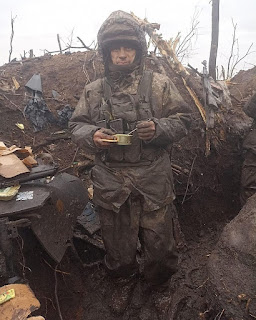The Battle of Bakhmut, spanning from August 2022 to May 2023, represents one of the most intense and protracted engagements in the ongoing conflict between Russia and Ukraine, epitomizing the harrowing and brutal nature of contemporary warfare. Located in the eastern Ukrainian region of Donetsk, Bakhmut emerged as a strategic and symbolic prize, drawing the full focus of military efforts from both sides. The battle commenced when Russian forces, driven by a desire to secure a decisive victory and exert control over the Donbas region, launched a series of aggressive offensives aimed at capturing the city. Underestimating the resolve of Ukrainian defenders, the Russians believed that Bakhmut's capture would provide a critical advantage and act as a catalyst for further advances into Ukrainian territory.
The city, with its labyrinthine streets and dilapidated infrastructure, quickly became a scene of unrelenting urban combat. Ukrainian forces, leveraging the city's complex terrain and fortified positions, mounted a fierce and resilient defense. They turned Bakhmut into a fortress of resistance, employing a combination of trench warfare, guerrilla tactics, and strategic use of artillery to counteract the overwhelming numerical and firepower superiority of the Russian military. The urban battlefield saw a relentless exchange of artillery fire, with both sides suffering significant casualties as they vied for control of key positions and routes. The landscape, once vibrant, was reduced to a maze of rubble and ruins, a stark testament to the ferocity of the conflict.
UKRAINE SOLDIER IN TRENCH
As the battle dragged on, the humanitarian toll became increasingly dire. The civilian population, caught in the crossfire, faced severe shortages of essential supplies and a continuous threat to their safety. The city's infrastructure was systematically destroyed, with essential services crippled and living conditions deteriorating rapidly. Despite these challenges, the Ukrainian defenders, bolstered by a steady stream of reinforcements and supplies, managed to hold their ground and inflict significant losses on the Russian forces.
The battle for Bakhmut became a grinding war of attrition, characterized by its high casualty rates and the immense psychological and physical strain on both combatants and civilians. The prolonged engagement tested the limits of endurance and strategy on both sides, illustrating the brutal realities of modern warfare where victories are often measured in incremental gains rather than sweeping conquests. The Ukrainian counteroffensive, launched in the latter stages of the battle, ultimately forced a Russian withdrawal from Bakhmut. This shift underscored the strategic importance of the city and the broader implications for the conflict.
The battle's resolution not only demonstrated the resilience and strategic capabilities of the Ukrainian forces but also highlighted the broader geopolitical ramifications of the conflict. Bakhmut's fall and subsequent recapture became a symbol of the broader struggle for control in the Donbas region, reflecting the broader dynamics of the war and the enduring spirit of resistance amidst a backdrop of widespread destruction and loss. The protracted and fierce engagement at Bakhmut thus stands as a poignant example of the devastating impact of war, the enduring strength of human resolve, and the ever-shifting tides of geopolitical power.
RUSSIAN VICTORY ON BAKHMUT







.jpg)


.png)
.png)
.jpg)
0 comments:
Post a Comment